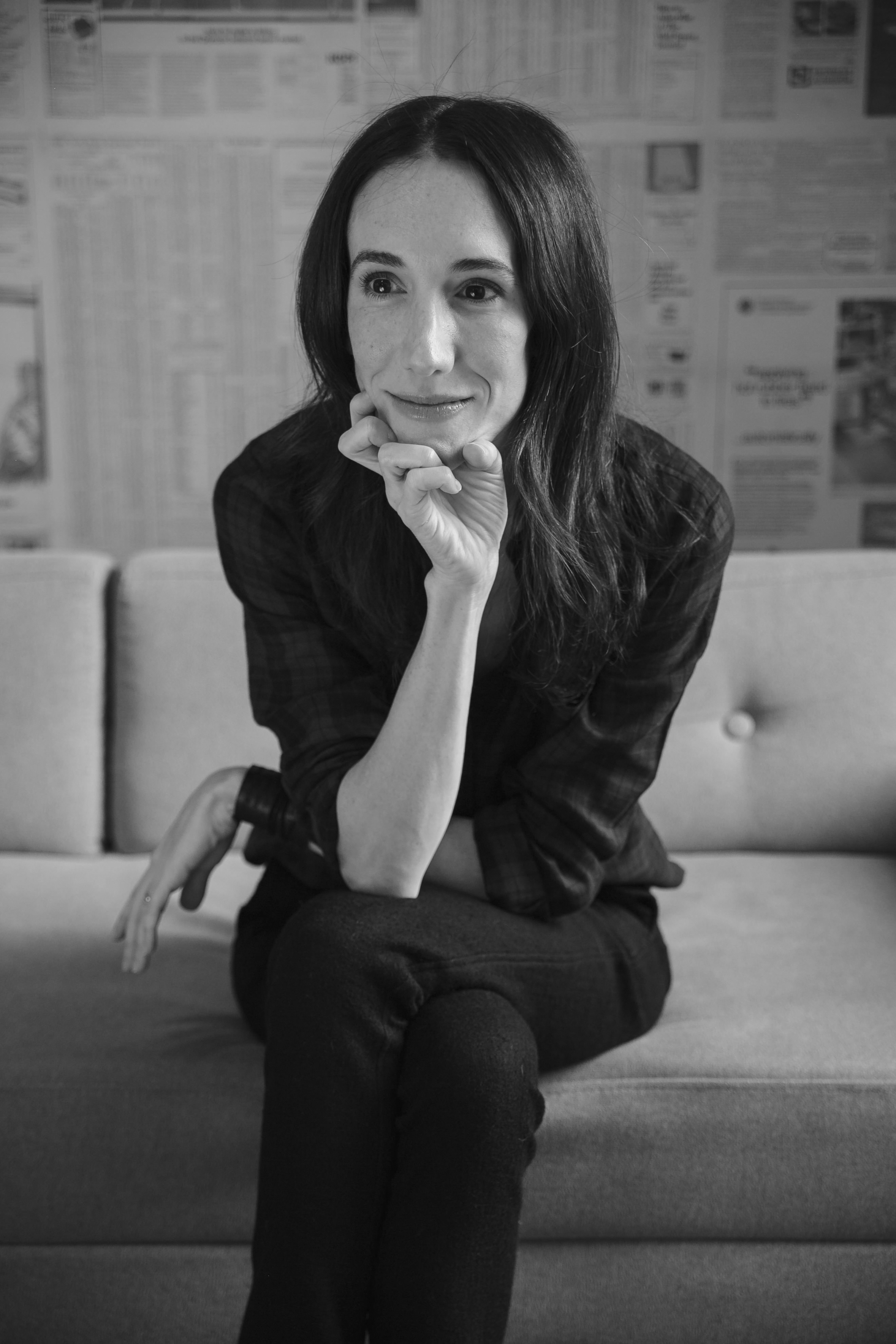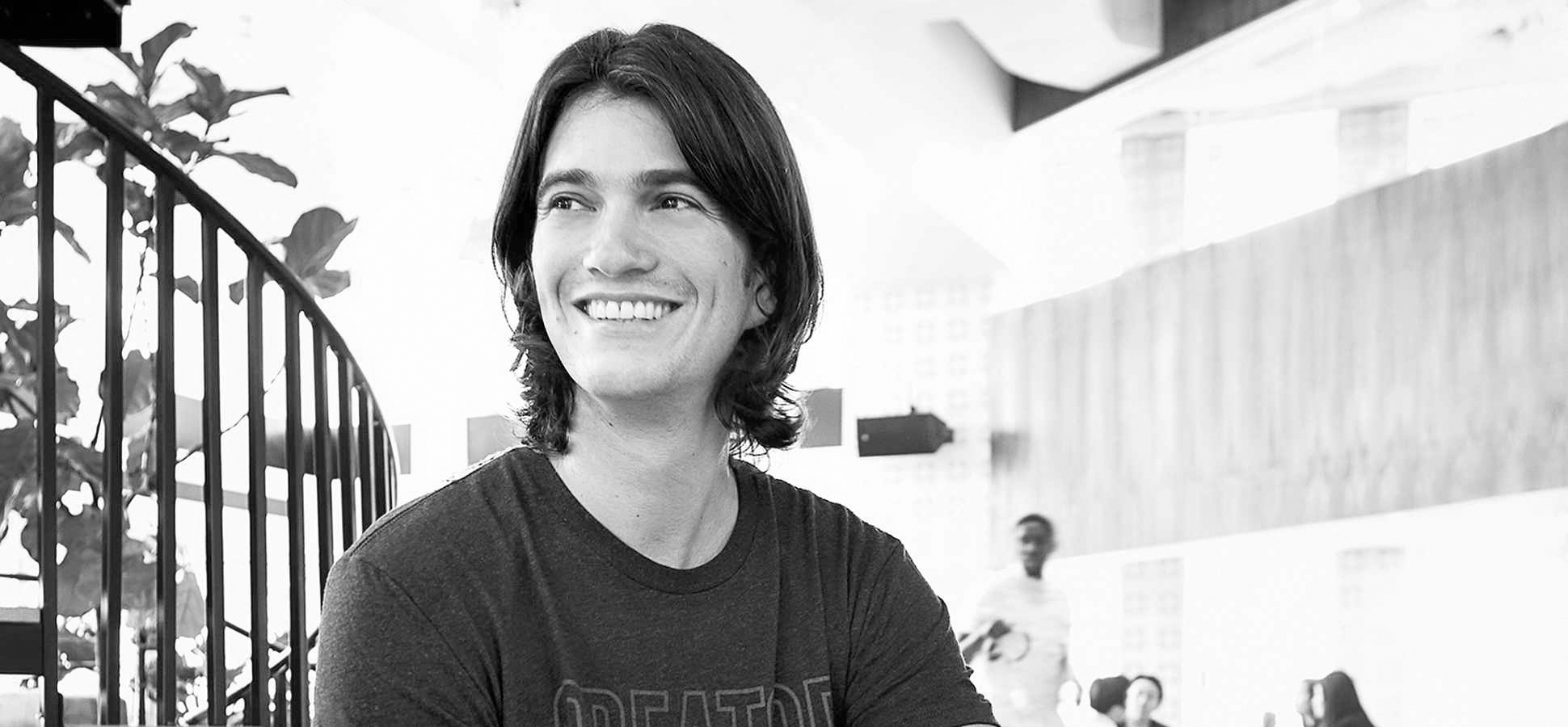Hillary Donnell

WeWork HQ Chelsea Commons New York, NY – source: https://images.ctfassets.net/e4m0suk6oqie/1XwFmzPXzCaWOMaW26SISU/b0e4581268319688dcfafd43df7cd3d1/20160128_HQ_Chelsea_NYC-12.jpg
The co-working startup WeWork announced that it is opening a school called WeGrow in November 2017. WeWork’s cofounder Rebekah Neumann describes the project as “a new conscious entrepreneurial school committed to unleashing every child’s superpowers.” The pilot WeGrow academy, which will be housed at the startup’s headquarters in Chelsea, is slated to open its doors in the fall of 2018. The private elementary school will initially offer preschool through third grade, but the company plans to add grade levels over time and eventually open schools at each of its stateside and overseas locations.
Considering WeWork’s recent history of rapid expansion, and the current education innovation fad amongst budding billionaires, this announcement comes as no surprise. Rebekah and Adam Neumann, WeWork’s co-founders, have been frenetically growing the brand, which was recently (over)valued at $20 billion, to include much more than just a place to rent a desk and hold meetings. Recently they snapped up the Flatiron School, a New York based coding boot-camp, and opened WeRise, a gym cum wellness facility. In October, Neumann partnered with Airbnb to allow itinerant freelancers to rent deskspace in WeWork facilities through the Airbnb app. This kind of growth is emblematic of burgeoning start-ups that are trying to follow in the footsteps of Facebook and Google, and the corporate compulsion to absorb and assimilate activity unrelated to work seems insatiable. Phenomena like the Google campus, and Facebook’s forthcoming “village” in Menlo Park supposedly increase productivity by combining convenience, futuristic design (the WeGrow space will be designed by superstar Danish architect Bjarke Ingels) and stock-option padded salaries. With a beer tap, laundry services and a full-fledged school within striking distance of the copy machine, workers presumably have fewer and fewer reasons to leave the office, all while enjoying the added benefit of feeling “in community”.

Rebekah Neumann – CEO and Founder of WeGrow – source: https://images.ctfassets.net/e4m0suk6oqie/56STq9qzduw8MicWaW8IAM/9ca90fb4f1d72c03ab643741929ec3d5/Rebekah_Neumann.jpg
This then is where hyper-capitalism meets an odd historical bedfellow. In 1820, Charles Fourier was envisioning the phalanstère: a combined work and living space where a myriad of community needs would be met in one building. It would be, as Marcuse put it, a sort of Eden where “work would be transformed into pleasure.” Fourier decried industrializing labor practices and educational systems as profoundly alienating, and saw the standardization resulting from industrialization as deadening to the spirit of children and adults alike. Fourier believed that allowing people to pursue personal interests (even those deemed taboo by capitalist society, such as homosexuality) would be liberating and encourage free self-development, closing the gap between leisure and work. Before the start of the Civil War, more than 30 of these communities functioned in the United States.
In the vein of Fourier, Adam Neumann is quick to blame the standardized education system for “squashing the entrepreneurial and creative spirit that’s intrinsic to all children.” An obvious difference between them, of course, is that Fourier saw capitalism as an immiserating force rather than one that fueled creativity. At the core of his model, Fourier required residents of the phalanstère to embody the socialist ethos, rather than the “entrepreneurial spirit” extolled by WeWork.
Adam Neumann, who is Israeli, has said he would like to see WeWork evolve into a “capitalist kibbutz” where ostensibly the profit motive and communitarian ethic can coexist, which raises the perennial question about whether self-interest is compatible with social cohesion. We might also ask whether such amenities as the infamous WeWork “kegerators,” refrigerators filled with free booze, actually promote pro-social behavior on the job or just help employees forget that they’ve been working on the same proposal for 12 hours. We should also be asking ourselves what the WeWork community/schooling model represents for those of us interested in encouraging revolutionary educational practice in public schools and universities. Is this project relevant to our concerns at all given its limited access to only to the wealthiest families until a handful of scholarships are opened to ‘underserved students’? Undoubtedly, wealthy parents will be drawn to a school promising freedom and opportunity, the ragged buzzwords of American capitalism, but how should the rest of us appraise the situation? Is there a lesson to be gleaned from this experiment in hyper-capitalist education?

WeWork Fulton Center Commons New York, NY – source: https://images.ctfassets.net/e4m0suk6oqie/2ah3UYOBtKOAOm2cWmaOmq/534caf8f5547f6127d5acb125c1c5f96/20161102_11_John_Street_NYC-21.jpg
Like any proposal with billions of dollars of presumed value, this project likely appears far more innovative than it actually is, and the sheer unoriginality of the WeWork educational initiative is worth highlighting. The Neumanns’ plan to focus learning around “meaningful local cultures and environments so [learning] can be hands-on and experiential” evokes a core tenet of progressive educational practice. As long ago as 1938, John Dewey insisted on experiential learning, arguing that the role of the educator is to ground a learner’s encounter with the unfamiliar in a context that mimics everyday experiences so the learning will “stick” beyond that singular experience, thereby carrying over as usable knowledge. In the most extreme variant of exploratory education, the free school, children are allowed to guide their own learning.
WeGrow is a not free school, and its model is heavily dependent on adult intervention, both to set up learning experiences and to then frame such learning as being marketable. As a Bloomberg article from November states, “The kids have already gotten lessons from the Neumanns’ employees in creating a brand and using effective sales techniques, and from Adam Neumann on supply and demand.” On the one hand, this educational model will certainly make students themselves more attractive candidates on the job market, thereby attracting parents seeking alternatives to public schools. On the other hand, it is apparent that pedagogical buzzwords like freedom, exploration and experiential learning are merely an attractive veneer for the unsavory premise that that children’s passions should be pursued only insofar as they are marketable. Rebekah Neumann recently said, “there’s no reason why children in elementary schools can’t be launching their own businesses.” I suspect progressive educators and discerning skeptics could come up with quite a few.
The Neumanns are hurrying to make their mark on what has proven to be an irresistible venture for people who have more money than they know what to do with. Consider The Primary School, Mark Zuckerberg’s East Palo Alto initiative, which promotes physical health for low-income students, or the Altschool, ex-Google exec Mark Ventilla’s personalized learning tech-driven network. Even Donald Trump has some dim awareness that education reform is buzzworthy right now. Joining a chorus that includes the last three Commanders in Chief, as well as countless executives and investors who justify their support for neoliberal education reform policy (i.e. charters, vouchers or outright privatization) on the premise that these reforms allow for innovation, Trump addressed a joint session of Congress with the oft recycled adage: “education is the civil rights issue of our time.” He’s not wrong. But it is taken for granted both that any innovation coming from incubators like WeWork is good when it is applied to any sector, and that this innovation will trickle its way into public schools. Neither of these premises is solid, and both require hearty challenges

Adamm Neumann – source: https://www.inc.com/magazine/201507/scott-gerber/exit-interview-adam-neumann.html
As we dedicate ourselves to the campaign for a fair wage and benefits that reflect the immense labor and emotional demands of teaching at the graduate level, we should also pay close attention to the ways in which education sits squarely in the crosshairs of insidious neoliberalization at the primary and secondary levels as well. Initiatives like WeGrow and other boutique schools may seem like a distraction from the battle to keep public schools open and thriving, but if we allow the media to continue touting the glitzy and illusory achievements of entrepreneurial educational ventures, we are losing the ideological battle as much as the material one.
If you have children yourself, this embattled terrain is all the more familiar and personal. Even those of us without kids can attest to knowing someone who is grappling with the question of where their children will attend school. Does our commitment to public education extend to entrusting our children and their future to them? Sources say WeGrow is already overenrolled for next fall, and the admissions applications continue to pour in. WeWork’s project and similar school experiments are increasingly siphoning off money, resources and the students themselves from our public schools. The best we can do as educators is to encourage everyone to put faith, time, energy, and most importantly, our kids, into the public school system.
